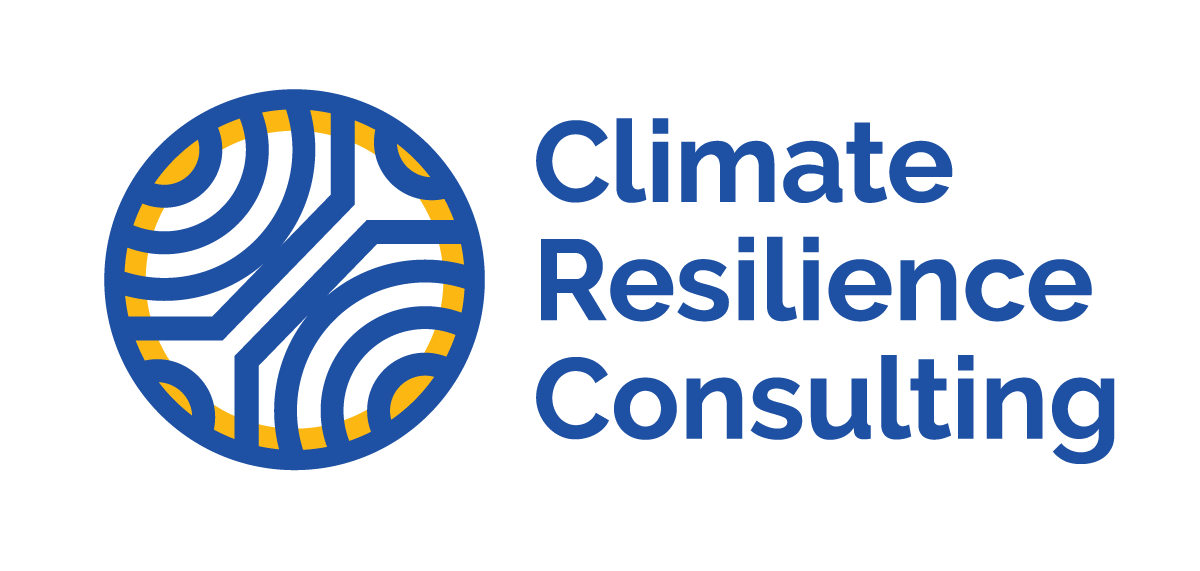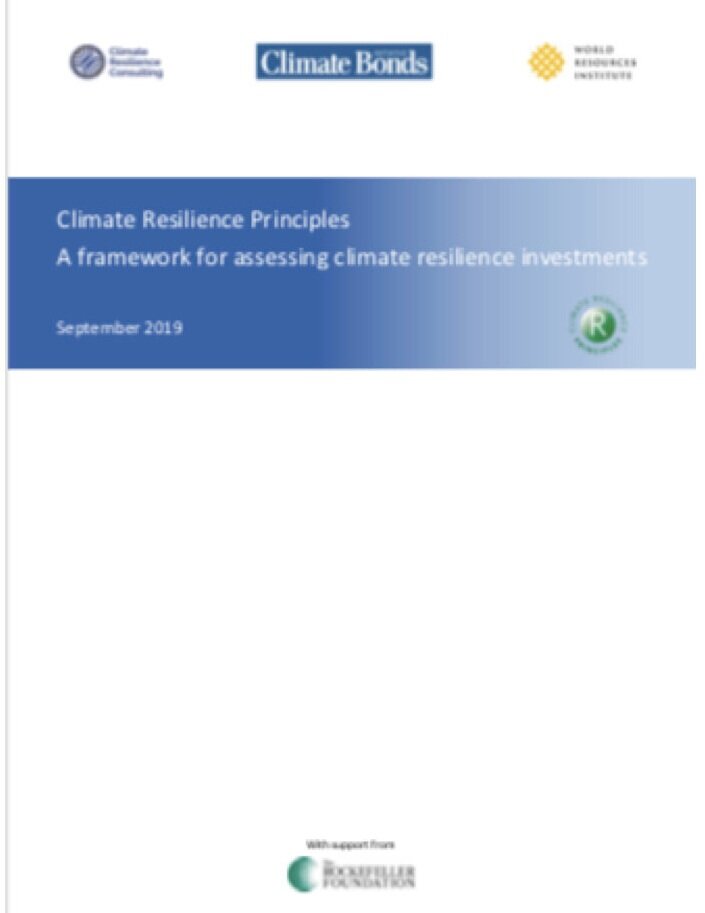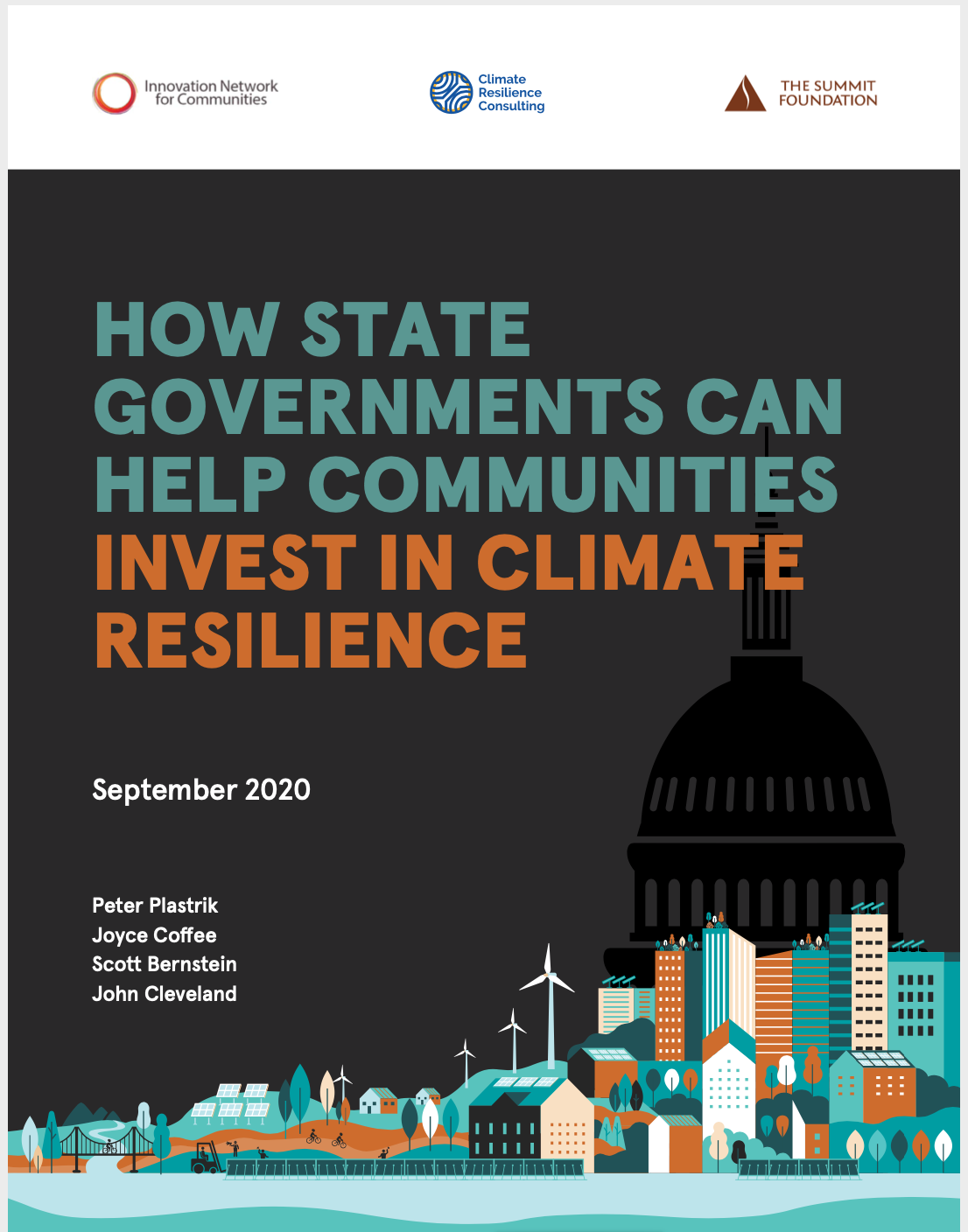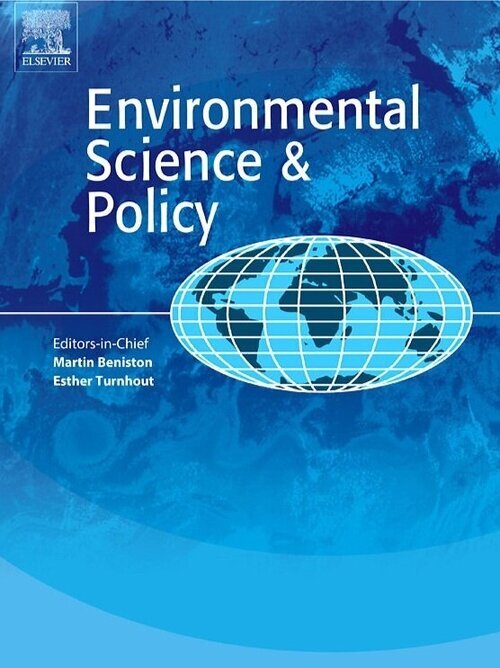FEATURED INSIGHTS
Since our founder Joyce Coffee established one of the world’s first climate adaptation strategies for the City of Chicago in 2008, we have been on the leading edge of crafting actionable resilience strategies that lead with solutions that create social equity and focus on the fundamentals of resilience-building: assessing climate risk: hazards, vulnerability and exposure; addressing asset-level climate risks and building community climate resilience. Our strategy work focuses on resilience success that saves lives and improves livelihoods while saving money through transformative policy change, prioritized soft and hard infrastructure improvements, and vibrant and reciprocal partnerships.
Working with our clients and other collaborators, our team co-authors and contributes to research and reports that aim to move resilience into practice. Climate resilience work is evolving and new investigations are required to accelerate the sector and our communities toward equitable climate resilience. CRC provides our clients with future forward insights grounded in practicality born from our decades of experience in the private, nonprofit, government and academic sectors.
For CRC projects that do not result in a public report, please see our Projects page.
Ready-to-Fund Resilience Toolkit
This toolkit describes “how” local government leads and partners can design more fundable projects by pulling specific policy levers, seeking key partnerships, using innovative accounting practices, inverting power structures, and rethinking and redesigning internal processes. It helps local government leaders and partners operate within current finance and policy systems to better prepare themselves and their communities for climate resilience funding and finance. Co-created, along with a Technical Guide, by the American Society of Adaptation Professionals, the work was supported by the Climate Resilience Fund and NOAA’s U.S. Climate Resilience Toolkit. It is a part of the UNDRR Sendai Commitments.
State of the Climate Resilience Field
What would a strong, mature adaptation field look like, how can it be built on a bedrock of social equity and what would it take to build it? To help answer these questions, The Kresge Foundation—one of the leading philanthropies supporting climate adaptation in the US—commissioned CRC to lead an assessment of the state of the climate field.
Climate Resilience Principals
Losses due to weather-related events have increased nearly ten-fold over the last 40 years. To combat spiraling losses from climate impacts, an estimated USD 200 billion globally will soon be required annually. CRC led the technical advisory that designed a set of principles for evaluating climate adaptation and resilience investments.
GOVERNMENT CLIMATE RESILIENCE REPORT
This report presents recommendations for how state governments can develop climate-resilience financial systems that help local communities invest in protecting residents, businesses, public infrastructure, private property, and natural resources from climate-driven stresses and shocks.
INTERNATIONAL & NATIONAL REPORTS
Climate Resilience Consulting is the Author or Co-Author of dozens of reports that have shaped the Climate Resilience field and informed best practice in local, state and national government, corporate and nonprofit sectors. Our aim is to help leaders from Main Street to Wall Street create resilience choices. Many of our reports have a special emphasis on social equity. As leaders around the globe emerge into an awareness of the need for resilience, we are here for you with our 25 years of vanguard work to save lives and improve livelihoods in the face of climate shifts.
NATIONAL REPORTS
EXTREME HEAT SOCIAL AND BEHAVIORAL SCIENCE RESEARCH
Prepared for National Weather Service. Top recommendations:
Emphasize actions to improve health outcomes
Overcome messaging barriers to those at greatest risk
Tailor specific messaging in terms of location, severity, language
Expand the network of trusted intermediaries disseminating messages to include, medical professionals, social workers, and faith leaders
Issue heat-related communication sooner
KEEP SAFE MIAMI FUNDING AND FINANCE GUIDE
Affordable housing is fundamental to resilient communities. Working with a national advisory board, Enterprise Community Partners and the Institute for Building Technology and Safety we created a funding and finance guide to help affordable housing developers and owners locate resources for resilience measures that protect residents. Through the Keep Safe Miami process, the City of Miami identified additional funding to shore up multifamily low and moderate income housing resilience.
MONEY FOR RESILIENT INFRASTRUCTURE
HOW TO FINANCE AMERICA’S CLIMATE CHANGED FUTURE
We are in persistent pursuit of ways to move climate resilience from concept to action. One gap we perceive: a lack of information on how to finance and fund resilience projects. In order for plans to be implemented, cities and utilities need money. In order for financiers to invest, they need bankable projects. This report aims to increase the number of resilience projects that improve lives and livelihoods for America.
Report out from a session at the 2024 National Adaptation Forum exploring Trends & Examples of Transformative Adaptation. A part of a bi-annual stock take of the US Adaptation Field.
WE’RE DOOMED, NOW WHAT: FINDING THE WAY THROUGH CLIMATE CHANGE ADAPTATION TECHNOLOGIES.
We were invited by Arthur D. Little to author the hopeful TAKING ACTION ON EXTREME HEAT Appendix in this volume, including strategic and technology solutions.
BUILDING A NATION OF RESILIENT COMMUNITIES
CRC is an invited contributor to the nationwide Resilience21 initiative influencing the Biden presidency. We brought a particular emphasis on social equity and resilience finance. R21 focuses on the social compact, government institutions, public health, physical infrastructure, and natural environment. We continue to take the pulse here.
Prosperous Sustainable Neighborhoods
We were invited contributors to this volume, co-authoring the chapter on Climate Resilience: The Next Frontier for Community Development.
RESILIENT CITIES SUMMIT: USING DATA AND METRICS TO BUILD RESILIENCE
Based on our long-standing relationship with resilience leadership at the Urban Land Institute and the National League of Cities, and with the US Green Business Council, we led their annual Sustainability Summit, facilitating crucial conversations with elected and appointed city leaders about how to use data and metrics to build resilience, especially given data implications on social equity.
MIAMI BEACH FLORIDA CLIMATE ADAPTATION
We were invited to chair Urban Land Institute’s advisory panel for Miami Beach Florida, investigating the City’s vanguard Stormwater Management and Climate Adaptation work. Leading twelve expert panelists alongside ULI, we provided recommendations on opportunities for green and blue infrastructure as well as regulatory, finance, and communications strategies, presenting an action plan to the city’s Mayor and Commissioners.
SAFER AND STRONGER CITIES: STRATEGIES FOR ADVOCATING FOR FEDERAL RESILIENCE POLICY
Working with practitioners at Enterprise Community Partners, we developed an infrastructure platform to increase federal support for city resilience, co-creating a policy document for 100 Resilient Cities pioneered by the Rockefeller Foundation. We emphasized a national infrastructure bank, modernized methods of cost benefit analysis, resilient infrastructure rating metrics and agency coordination.
BUILDING A SUSTAINABLE REGION: INNOVATIVE PRACTICES FROM METRO CHICAGO’S GLOBAL CORPORATIONS
We conceived of, initiated, invited participants too and led a first-of-its kind collaboration with corporate sustainability leaders headquartered in the City of Chicago. From McDonalds and MillerCoors to Baxter, Abbot and ArcelorMittal, we set up a friendly competitive atmosphere to push corporate Chicago to be their sustainability best on behalf of the City of Chicago and with leadership from Edelman.
PLAYBOOK 1.0: HOW CITIES ARE PAYING FOR CLIMATE RESILIENCE
In answer to the frequent refrain from inspired City leaders “but how do we pay for it?!” Innovation Network for Communities and CRC identified eight strategies leading cities are using to pay for large-scale climate-resilience projects, mostly to address sea level rise and flooding. These strategies amount to an initial approach for deciding who will pay what and how city governments will generate the needed revenue.
A ROADMAP TO RESILIENCE INCENTIVIZATION
We were an invited contributor to the National Institute of Building Sciences Multi-Hazard Mitigation Council (NIBS) Committee on Finance, Insurance, and Real Estate (CFIRE) committee. As a group of national building, finance and resilience experts, we aimed to add motivate action on the interest generated by NIBS’ study Natural Hazard Mitigation Saves which demonstrates that pre-disaster mitigation activities save society much more than they cost, at a minimum generating a 6:1 benefit cost ratio.
HOW STATE GOVERNMENTS CAN HELP COMMUNITIES INVEST IN CLIMATE RESILIENCE
Aligned state actions can help increase funding and financing for climate resilience investment through revenue-generating mechanisms, provision of basic state services related to climate resilience, and the administration of federal funding flows that can be used for resilience purposes. To help states consider and act on the recommendations, the report includes a State Climate Resilience Action Checklist that identifies the essential actions to build a comprehensive approach to resilience.
The report, commissioned by The Kresge Foundation, and researched and written in collaboration with Susan Moser Research and Consulting and Four Twenty Seven is based on a literature review and interviews of 100 adaptation experts. It assesses the state of the climate adaptation field and provides a vision of a mature field and recommends a go-forward strategy. For an internal report, we also analyzed Kresge’s Climate Adaptation Portfolio.
TAKING STOCK AND STAYING IN THE VANGUARD: CLOSING THE RESILIENCE GAP THROUGH TRANSFORMATIVE ACTION
With support from the Kresge Foundation, we held the core workshop at the National Adaptation Forum, to ascertain the current state of the field, profile examples of transformative action, identify examples of transformational adaptation with social equity at the center and engender commitments for resilience field leaders to enact critical actions in the next two years.
MORE URGENCY, NOT LESS: THE COVID-19 PANDEMIC’S LESSONS FOR LOCAL CLIMATE LEADERSHIP
Our report offers guidance about navigating climate-action priorities through the gauntlet of challenges created by the COVID-19 pandemic and the ensuing economic crisis. Recommendations include: Act to prepare communities for climate change; Build on residents’ behavior changes; Maximize job expansion, public health improvement and social equity.
Racial and spatial segregation generates uneven exposure to flood risks and worsens economic and health consequences for BIPOC communities. We developed an integrated set of decision-making tools and resources to center racial justice in urban adaptation. Report and tool available here
READY-TO-FUND RESILIENCE TOOLKIT
With the American Society of Adaptation Professionals. Walks users through ten characteristics to integrate into climate resilience projects to ensure they're ready to receive the funding and finance. Co-created, along with a Technical Guide, by the American Society of Adaptation Professionals. Included in the U.S. Climate Resilience Toolkit, and its “Steps to Resilience” planning framework. Made possible in part by a NOAA cooperative agreement with Climate Resilience Fund.
LOUISIANA TRANSFORMATION: RESILIENCE IN ACTION: A REPORT FROM THE 2018 SMART GROWTH SUMMIT WORKSHOP
We created a resilience workshop for the Center for Planning Excellence, helping the nonprofit to fundraise for the work and using innovative facilitation techniques to engage participants in identifying resilience assets, gaps, and a set of near-term actions that will serve to catalyze a shift in both thought and practice toward proactive resilience-building. Let’s talk about Climate Resilience, see here.
A BLUEPRINT FOR COASTAL ADAPTATION: ADAPT | PREPARE | RETREAT, A TALE OF TWO CITIES
We explore social-ecological vulnerability and economic and political factors through a critical analysis of Miami Beach, Florida and Buras, Louisiana.
PULSE CHECK 2022 - ARE WE ADAPTING WELL AND ENOUGH? THE STATE OF THE US ADAPTATION FIELD
CRC co-led an effort to engage climate resilience leaders in a stock-taking of the Purpose, People, Practice and Pillars that make up the adaptation field. Resulting insights about the state of the field:
•Necessary expertise & skilled workforce; •Clarity on good/best practices and tools, established as “common” practice;
•Advancing shared goals and values;
•Professionals networks; •Adequate training;
•Political and public support;
•Problems solved effectively, efficiently, and in an integrated manner;
•Reduced societal burdens and maximized opportunities
As New York, New Jersey and Connecticut were finalizing the Regional Plan Association (RPA) Forth Regional Plan, we mined creative ideas from finance industry leaders to create the framework for an Adaptation and Resilience Trust Fund to create implementation pathways for governance and funding that increase the region’s coastal adaptation to climate change.
US CLIMATE ALLIANCE GOVERNORS’ CLIMATE RESILIENCE PLAYBOOK
In 2020, 22 weather events across the U.S caused $95 billion in cumulative damages, shattering previous records. States must move swiftly to build their resilience to these and other climate impacts. In doing so, they can save billions of dollars and make America’s communities more vibrant, healthy and prosperous.
An update to the 2018 version, the 2021 Governors’ Climate Resilience Playbook outlines 12 foundational steps to set and achieve an effective state-level climate resilience agenda
STATE RESILIENCE PARTNERSHIP LOCAL FLOOD MITIGATION TECHNICAL ASSISTANCE
With the American Flood Coalition, we researched and wrote case studies of State-to-municipal government technical assistance programs that aim to increase local flood resilience projects. Other jurisdictions can learn from these cases as they work to create the climate resilience project pipeline and build priority projects.
Massachusetts Municipal Vulnerability Preparedness (MVP) Program
INTERNATIONAL REPORTS
Are you writing a strategic report? Let us help you!
To get started, just fill out this form below.
We’ll reply back with next steps on convenings, research, partnership and co-production.














































